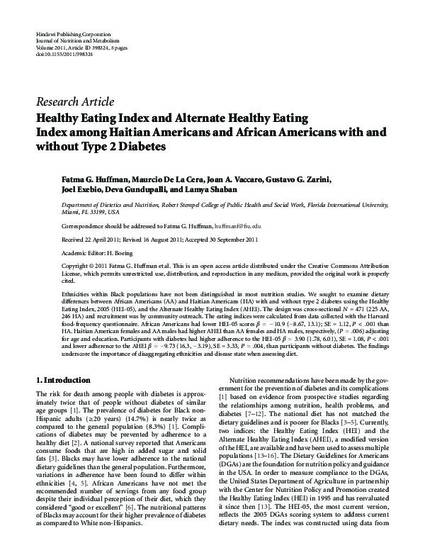
Ethnicities within Black populations have not been distinguished in most nutrition studies. We sought to examine dietary differences between African Americans (AA) and Haitian Americans (HA) with and without type 2 diabetes using the Healthy Eating Index, 2005 (HEI-05), and the Alternate Healthy Eating Index (AHEI). The design was cross-sectional (225 AA, 246 HA) and recruitment was by community outreach. The eating indices were calculated from data collected with the Harvard food-frequency questionnaire. African Americans had lower HEI-05 scores (−8.67, 13.1); , than HA. Haitian American females and AA males had higher AHEI than AA females and HA males, respectively, () adjusting for age and education. Participants with diabetes had higher adherence to the HEI-05 (1.78, 6.01), , and lower adherence to the AHEI (16.3, −3.19), , , than participants without diabetes. The findings underscore the importance of disaggregating ethnicities and disease state when assessing diet.

This article was originally published in the Journal of Nutrition and Metabolism Volume 2011 (2011)